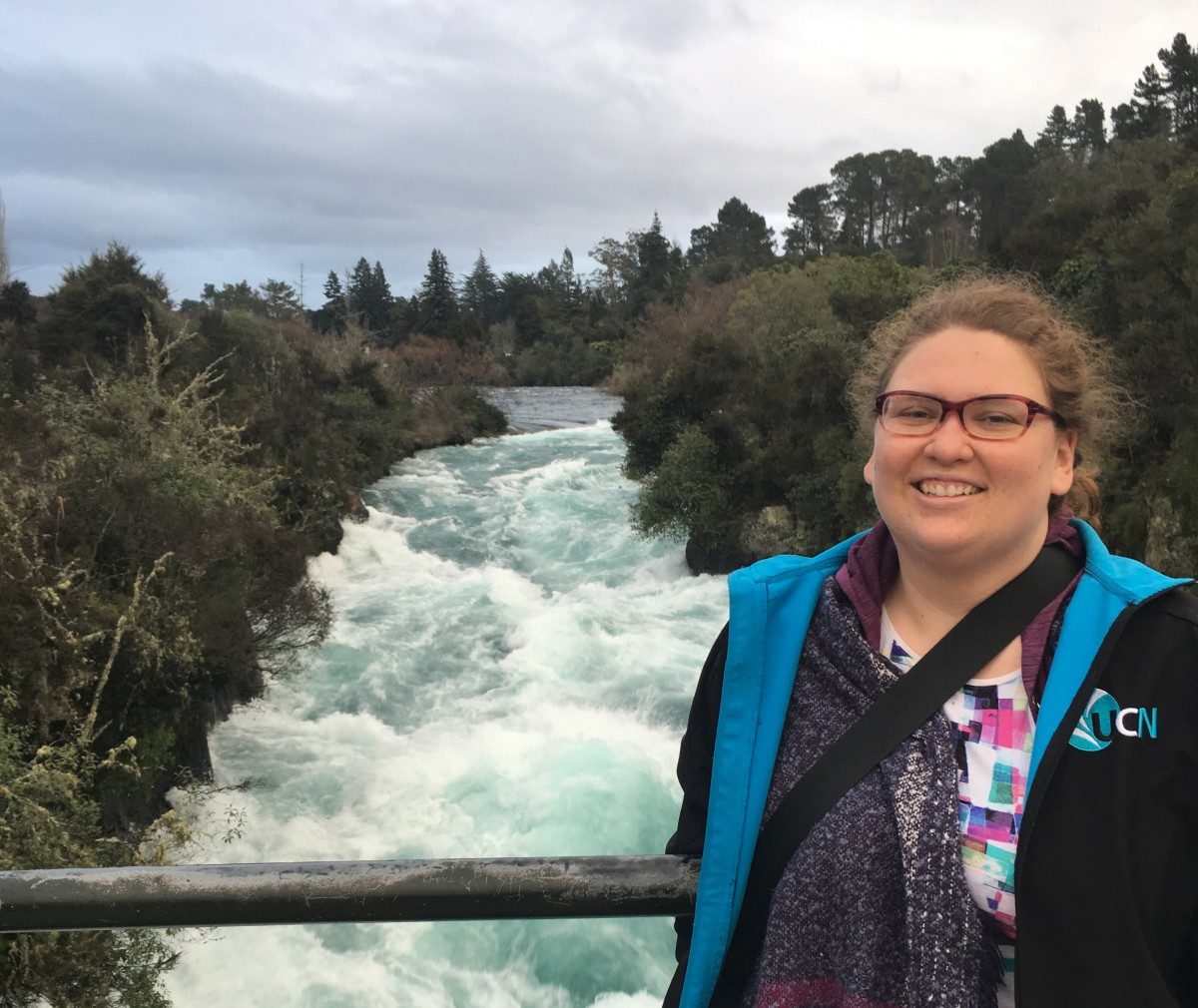
VALDINE FLAMING RECEIVED A SCHOLARSHIP FOR HEALTH RESEARCH IN NEW ZEALAND.
Internship in New Zealand ‘life-changing’ for Metis student
People who are both Indigenous and disabled often struggle on the fringes of the health-care system, says Valdine Flaming, a Metis woman who lives with multiple sclerosis (MS).
“It’s a double whammy,” says the graduate student, who has lost family members to chronic illness and disability. “You’re doubly invisible.”
Flaming, 33, is an advocate for people with MS in Thompson, the northern community where she grew up and still lives. Her drive to help others, and to understand chronic disease in a broader context, led her to pursue a master’s degree in disability studies at the U of M. She has finished her coursework and started her thesis research.
Last year, when Flaming applied for a Queen Elizabeth II Diamond Jubilee Scholarship (QES) to spend three months immersed in health research among the Maori people of New Zealand, she never imagined how much the experience would empower and validate her as a Metis scholar.
“It was life-changing,” she says. “I showed up in Aotearoa (New Zealand) unsure about explaining my Metis identity. I came back having clearly located myself as Metis, and unafraid to lead.”
The QES program at U of M focuses on global and Indigenous health. Launched in 2016, it is administered by Ongomiizwin – Research, part of the Indigenous Institute of Health and Healing in the Rady Faculty of Health Sciences.
The scholarship enables undergraduate or graduate students to undertake an international health research internship or field placement for three to 12 months. “Health” is broadly interpreted to include basic science, clinical science or social science projects.
“The students get valuable research or fieldwork experience, develop leadership skills and expand their global outlook,” says Natalie Riediger, director of the program. “Most importantly, they learn the importance of partnering with communities in Indigenous and global health research.”
The QES program has brought nine international students to the U of M to conduct research. It has funded 27 U of M students to go abroad, with most travelling to India, Belize, Colombia, Kenya, Australia or New Zealand, where the university has established partnerships. Applications are due at least four months prior to the proposed travel.
Flaming interned last summer at Whakauae Research for Maori Health and Development in Whanganui, New Zealand. She assisted with a research project that evaluated health programs aimed at preventing chronic conditions among Maori.
Though she had often felt “not native enough” and afraid to speak out as a Metis person in Canada, she says she was affirmed and accepted without question as Indigenous in Whanganui. “That really changed the way I saw myself,” she says.
Flaming learned that many factors stemming from colonialism affect Maori health – factors like poverty and lack of education, employment and affordable food. “It related a lot to northern Manitoba,” she says.
“A big thing in New Zealand is affordable housing that isn’t damp,” she adds. Mouldy homes there are linked to chronic conditions such as asthma.
Flaming was shocked to learn that chronic diseases like multiple sclerosis are stigmatized in New Zealand. Patients with MS are essentially left to manage on their own. “They don’t treat you after your initial flare-up,” she says.
If she lived there, she would not even be offered the disease-modifying drug that she currently self-injects to keep her serious symptoms in remission. It gave her a new perspective on how fortunate she is to be able to study, work and advocate for herself and others.
For her master’s thesis research, “I’m hoping to focus on the lived experiences of Metis women with chronic illness,” she says.
“My scholarship experience gave me insight and confidence to talk about my ideas and experiences in a way that recognizes the collective strength of disabled Metis people.”






